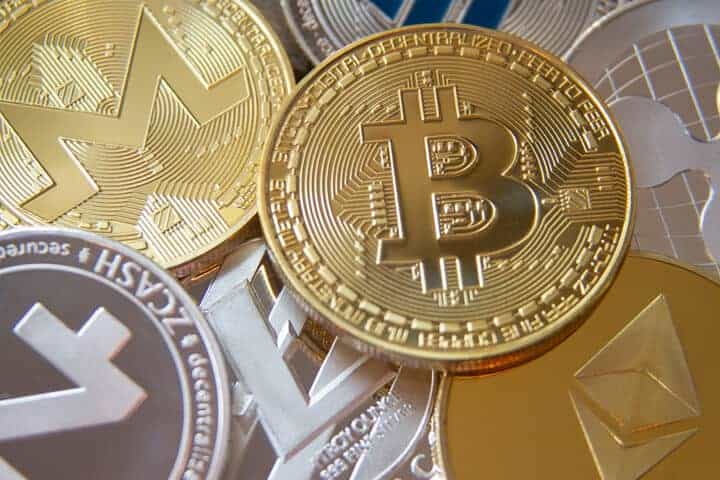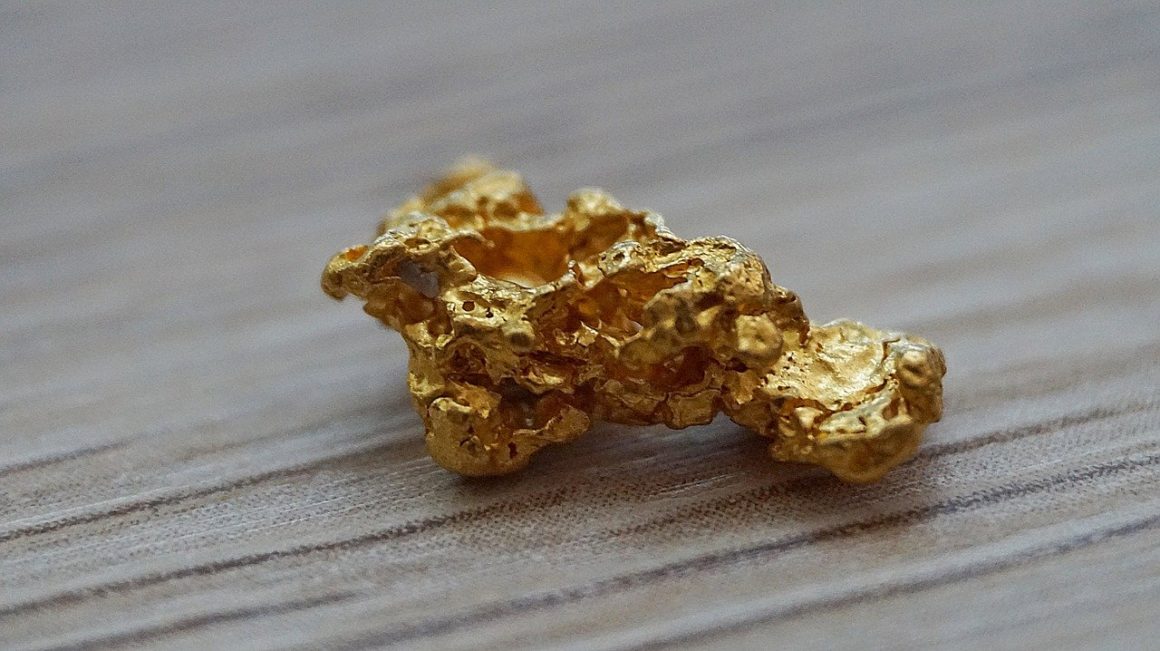Christmas shopping often presents challenges and once December arrives, the clock starts to tick and pressure mounts. Stress can easily replace festive cheer; it’s all part of the Christmas tradition in the holiday season. But times right now are far from normal, and finding the perfect Christmas gift has become more difficult amid lockdowns, supply-chain disruptions and massive uncertainty.
Under such circumstances, it’s not easy for shoppers to check the authenticity and origin of what they buy as gifts. Nor it is easy to find and wrap something novel for loved ones who already have everything they need. But help is now at hand in the form of crypto and blockchain technology.
With that in mind, here is this year”s Forkast.News blockchain holiday gift guide for this merry season. Happy shopping!
1. Blockchain-certified precious stones
Gemstones make wonderful gifts at Christmas and at any other time of year. Ever the popular gift, a diamond or other precious stone can give literal shape to love and longevity through its symbolism and aesthetic beauty as well as as a store of value.
But while diamonds may be forever, so too are the seemingly intractable problems related to how they are sourced. Blood diamonds, so-called because of the human-rights issues, child and slave labor, environmental damage and violence associated with the diamond mining industry, continue to flow out of Africa. Efforts to halt this, such as the 2003 Kimberley Process, have failed to deliver.

Colored gemstones, sourced from around 50 countries worldwide, aren’t immune either. The efficacy of due diligence into sourcing gems by major players has historically been inadequate. The result is that consumers can unwittingly become complicit in war crimes and child exploitation.
For those wanting to buy gemstones with a clear conscience, this presents a challenge. Fortunately, there is now a solution, as with many other supply chain problems, in blockchain.
Everledger is one blockchain-powered supply chain tracking company trying to ensure the origin and production of diamonds and other gemstones meet the ethical standards required by a growing number of shoppers.
“Multinationals need to establish several key elements if they want to be able to tackle the mounting issues of accountability in supply chains: a version of the truth that everyone can agree on, the ability to bring together a consensus between different stakeholders, and the security only an unalterable record can provide,” Everledger CEO Leanne Kemp, who is also co-chair of the World Economic Forum’s Global Future Council on the Future of Manufacturing, told Forkast.News earlier this year. “Blockchain technology, when coupled with other technologies, provides all of these things.”
If you’re looking for ethically-sourced, traceable gemstones that empower the women that mine them, take a look at Moyo Gems. By logging every stage of the production process from miner to retail stores on their “Provenance Proof” blockchain, the company ensures that the origins and processing of any given stone are not only adherent to ethical standards, but also available for anybody to verify.
2. Virtual real estate
Real estate isn’t your typical stocking filler, not the least because it’s pricey. It’s also usually much too big to stuff into fabric just large enough for a human foot. But for those determined to give real estate as a gift, anything is possible when it comes to square footage that only exists in cyberspace.

From Animoca’s The Sandbox to Decentraland, the variety of in-game real estate is in no short supply. Just like property in real life, these virtual spaces can be rented out, developed and decorated. Multiplayer games have expanded the world-building potentiality demonstrated by the Sims to mimic the interactiveness of real life.
What sets blockchain-powered metaverses apart from other free properties such as Animal Crossing islands or Sims house plots is the inherent ownership that is afforded by decentralization. Unlike traditional games wherein developers hold the majority of the power regarding in-game rules and future directions, virtual real estate based on a blockchain protocol allows individuals voting power in the world where their property exists.
Rather than spending years building your partner their dream house (à la Noah in “The Notebook”) unprompted, consider a plot of virtual land. It might be the better investment, both time- and value-wise.
3. A crypto pet
In the world of digital pets, first there were Tamagotchis, the pocket-pets that defined a generation. Then came the likes of Neopets. Now, it’s Cryptokitties.
Taking the Ethereum blockchain by storm in 2017 — overloading it and reducing it to a crawl — the collectible virtual cats seem like a natural next evolution in virtual pet-keeping. As non-fungible tokens (NFTs) powered by blockchain, each Cryptokitty is unique. Each creature can be “bred” and traded to maximize value. The theory behind collectibles is clear: just as scarcity dictates demand, the non-fungibility of certain tokens ensures their value.

Image: Cryptoshark, CC BY-SA 4.0 , via Wikimedia Commons
Not only are these crypto pet tokens themselves often viewed as an investment, their features offer another selling point. They’re fun, hypoallergenic and maintenance-free. Who could resist a buck-toothed, lavender Cryptokitty named Dragon? Certainly not the buyer who purchased her for the ETH equivalent of US$170,000 back in 2018.
4. Blockchain art and fashion
There’s a precedent for blockchain and art coming together: take Robert Alice’s Portraits of a Mind as an example. For art lovers who prefer a more direct technological bent to their collectibles, Opensea has a plethora of NFTs that represent rare artworks on the blockchain. On offer is a portrait of Batman entitled Genesis that last sold at 301.6554 ETH – today over US$100,000 — in October. Some more affordable options include a graphic portrait of Walter White going for ETH 0.049 (US$29.68 at the time of writing) for the Breaking Bad fan in your life, or an animated cityscape of neon lights listed for ETH 0.0278 (US$16.84).

And the creative opportunities aren’t limited to visual art: the 1-1-1 is Formula 1’s first official NFT, and the only one of its kind. The virtual version of a scale model car, it sold for 414.7388 ETH last year, and is now back on the market.
For the fashionista in your life, RTFKT, designer of the digital sneaker based on Tesla’s Cybertruck, is launching a new artificial intelligence-designed collection of shoes called “The X Evolutions.” Although these virtual shoes can’t be physically worn in the real world, they may withstand the test of time in cyberspace and can be admired without fear of wear and tear, keeping that pristine condition that sneakerheads in the real world so prize.
5. Blockchain-authenticated wine
A holiday season staple and, for some, part of the Covid-19 lockdown survival kit: a bottle (or two, or three…) of wine.
Be it red or white, from Napa Valley, Bordeaux, or Burgundy, good wine is often defined by its origin. But unfortunately, not all wines are what they say on the label. Wine fraud may not be foremost on a holiday shopper’s mind, but it’s a lucrative industry and buyers should beware. Higher-level scams produce bottles that are almost indistinguishable from the real deal.

For both amateur and professional sommeliers, it’s alarming that the International Center for Alcohol Policies says almost a third of all alcoholic drinks are mislabeled, counterfeit or fake.
So, how can one be certain that the US$300 bottle of Dom Perignon you’re trying to impress your guests with is actually what it claims to be? Singapore-based Blockchain Wine Pte. Ltd. has created a marketplace on Ernst & Young’s OpsChain blockchain platform that boasts “traceability, authenticity, transparency, trade, origin and opinion” and called by its acronym, TATTOO. Its supply chain tracking uses blockchain and is both verifiable and secure.
This winter, as you curl up by the fire after dinner with a bottle of red, do so in the knowledge that your wine is worth every penny by purchasing it through a blockchain-verified platform.
6. Cryptocurrency
In the beginning — before blockchain became divorced from crypto — there was bitcoin. Not yet 12 years old, the grandparent that begat all the other digital currencies and the blockchain technology world hit record highs in prices in November.

Some human parents are now gifting their babies bitcoin and other cryptocurrency as an investment for their future, taking note of the staggering returns over the past decade.
With the proliferation of stablecoins and other decentralized finance (DeFi) projects, there are plenty of investment opportunities. If bitcoin’s current bull market continues, it may not be out of the question to expect a payoff on an investment in a crypto gift before the year is over.
7. Digital gold coins
If bitcoin just isn”t your cup of tea — as Wall Street chief Jamie Dimon of JPMorgan recently declared — consider tokenized gold. For the tradition-bound, Gold is among the oldest of gifts, with a special place in the Bible no less. The Three Wise Men brought gold to baby Jesus. In cultures around the world, gold is given to celebrate births and weddings.
Why not bring gold-giving back to Christmas — in the everything-is-now-online spirit of 2020?
The 21st century version of the original Christmas gift is now available as digital gold. Gold in value and spirt but does not need to be lugged around.

With the market volatility of the past year, there may be a temptation to seek refuge in gold as a safe harbor and store of value. Yet, it may well be worth considering a more accessible resource.
“Blockchain with its decentralized and immutable data transparency offers a suitable channel to enable retail investors to put equity in gold bullion as opposed to paper gold,” said Jon Deane, CEO of Infinigold.
Deane told Forkast.News that blockchain facilitates gold ownership without the added burden of storage costs or the involvement of third party management.
Gold is just one of the many assets that are now being tokenized. As a holiday gift in year of harrowing changes and uncertainty, digital gold coins connote traditional values, longevity and stability while also being on the technological cutting-edge. Happy birthday to Christ!




